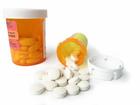|
How to right buying medicine online
Buying drugs onlineFirst, it's important to carefully consider the source of information and then to discuss the information you find with your health care professional. These questions and answers can help you determine whether the health information you find on the Internet or receive by e-mail from a Web site is likely to be reliable. Some websites that sell medicine can be not state-licensed pharmacies or aren't pharmacies at all; or may give a diagnosis that is not correct and sell medicine that is not right for you or your condition; or won't protect your personal information. Make sure the site requires a prescription and has a pharmacist available for questions. Buying your medicine online can be easy. Just make sure you do it safely. Preventing taking over-the-counter medicineIf you take several different medicines, see more than one doctor, or have certain health conditions, you and your doctors need to be aware of all the medicines you take. Doing so will help you to avoid potential problems such as drug interactions. Reading the label every time you use a nonprescription or prescription drug and taking the time to learn about drug interactions may be critical to your health. You can reduce the risk of potentially harmful drug interactions and side effects with a little bit of knowledge and common sense. This phase of research in test tubes, known as in vitro studies, allows researchers to perform drug-interaction studies in labs by testing a drug with other drugs that have the same route. This has made the research faster and more accurate. If two drugs go through the same enzyme, the presence of one drug can prevent the metabolism of the other. So this allows you to look at the worst-case scenarios and ask: 'What if we put this drug with that one, knowing that they have the same route?'" Not everything that happens in a test tube will become meaningful in humans, though. Results from these test-tube studies can tell us whether need to do further testing in people to find out if an interaction is clinically significant. Researchers say there are several important variables that affect individual differences in how drugs are metabolized, including race, gender, age, and health conditions. For example, people with kidney or liver disease don't eliminate drugs from their system as well as people who are healthy. Very young children and older people have slower drug metabolism than others, and women may metabolize drugs differently than men in some cases. Over the last several years, there has been a substantial increase in the number of drug-interaction studies the FDA sees in new drug applications. If drug interactions are significant enough, they can prevent a drug from being approved by the FDA. If the agency determines that known drug interactions can be managed and that a drug's benefits outweigh the risks for the intended population, a drug will be approved. Drug-interaction information then goes into the drug's labeling in the sections on "clinical pharmacology," "precautions," "warnings," "contraindications," and "dosage and administration." The large number of drugs on the market, combined with the common use of multiple medications, makes the risk for drug interactions significant. Consumers need to tell doctors what they're taking and ask questions, and health professionals could do a better job at trying to get the information they want. Some antibiotics, such as rifampin, can lower the effectiveness of birth control pills. Sildenafil, the active ingredient in the erectile dysfunction drug Viagra, should not be taken with nitrates for heart treatment because of the potential for dangerously low blood pressure. Drug interactions with dietary supplements includes herbs and vitamins, which can interact with drug-metabolizing enzymes. St. John's wort is an herb commonly used by people with cancer to improve mood, but research has shown it interferes with the metabolism of irinotecan, a standard chemotherapy treatment. Vitamin K (in dietary supplements or food) produces blood-clotting substances that may reduce the effectiveness of blood-thinning medicines like warfarin.
Find yourself a new love
|

